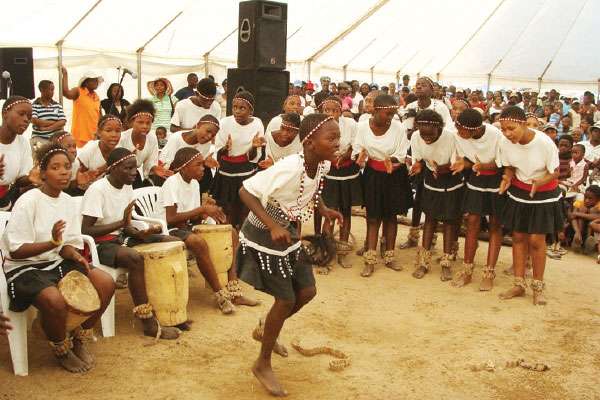Domboshaba festival stirs cultural renaissance
This year’s Domboshaba Festival of Culture and History (DFCH), scheduled for October 1st to 4th provides stakeholders with an opportunity to review the history of the annual event which started 15 years ago. Started by the Mukani Action Campaign (MAC) as a forum for the mobilisation of Bakalanga around the preservation and promotion of their language and culture, the DFCH has been held since the year 2000.
MAC is a society of Kalanga language writers based in Francistown. Its mandate is to publish books in the language. The Society for the Promotion of Ikalanga Language (SPIL) soon joined MAC to facilitate the annual event. The Domboshaba Cultural Trust (DCT) took over the running of the festival in 2008 from MAC and SPIL. Since then, the DCT has been holding the festival annually to raise awareness among Bakalanga about their history, language and culture. Under the watch of the DCT, several Kalanga books and pamphlets have to date been published.
In addition to that, the trust has, on several occasions, engaged the Ministry of Education and Skills Development (ME&SD) on the restoration of Kalanga language in the education system of this country. Asked whether the festival had achieved its objectives, the publicity secretary of the Domboshaba Cultural Trust which organises the event, Kangangwane Phatshwane, answered in the affirmative. “We might not be where we would have liked to be right now but good progress has been made. Bakalanga are now more confident with respect to using their language at public functions such as weddings and funerals.
More and more churches now compose and sing Kalanga hymns and choruses. All this is significant because it has restored the language into the public domain,” he said. He is happy that some private newspapers feature articles in the Kalanga language. In Phatshwane’s view, since the Domboshaba festival started even public perceptions about languages other than Setswana and English, have changed. “Even Btv broadcasts a session recorded in the Naro language; an indigenous language in Ghanzi. In the past, this could never happen,” stated the DCT spokesman. His view is that, the Domboshaba annual festival has encouraged other tribes throughout the country to celebrate their cultures.
“We have generated a lot of interest on culture nationally hence the cultural renaissance countrywide,” explained. Kalanga is a transnational language found in both Botswana and Zimbabwe. The fact that it has recently been made an official language in Zimbabwe gives hope to Phatshwane that going forward, Botswana government will also follow suit. “If government continues to rebuff us, you might have a situation where Kalanga children cross over to Zimbabwe to learn their language,” proclaimed Phatshwane who added that his organisation has not heard anything from the Ministry of Education lately. The last time the two communicated, DCT received a non-committal answer from the ministry after requesting for the re-introduction of Kalanga in schools. The ministry also promised a language pitso where stakeholders would interact over the matter. “There has not been further communication with government on the matter. We intend to engage the new minister on the teaching of Kalanga,” said the DCT official.
Unlike the usual performing arts, Kalanga traditional dance and song, this year’s Domboshaba Festival of Culture and History (DFCH), will feature activities such as a football game and a bicycle race. “For instance, there will be a football game at Vukwi village and a bicycle race the following morning which is a Friday. This will be followed in the afternoon by a tour of the heritage sites and then a night around the fire featuring song, dance, games, poetry and folk-tales among other activities, at Mosojane village,” said Phatshwane who added that the main event, will be held at the usual place at the Domboshaba hills at Kalakamate on the 3rd day of the month.
To be held under the theme: Inclusion In And Through Education: Language Counts, the event will be officially opened by Mishodzi Molokomme on October 3rd. Molokomme is one of the founding trustees of the DCT.T. The programme will end on the 4th day of the month with the usual Nswazwi marathon. Apparently, the sporting activities at the start of the programme are the result of overtures by the Ministry of Youth, Sports and Culture to all cultural organisations to have a more interactive relationship with the ministry. The Permanent Secretary in the Ministry of Youth, Sports and Culture was on national television recently indicating that the relationship he proposes would include sponsorship of cultural festivals by his ministry.






